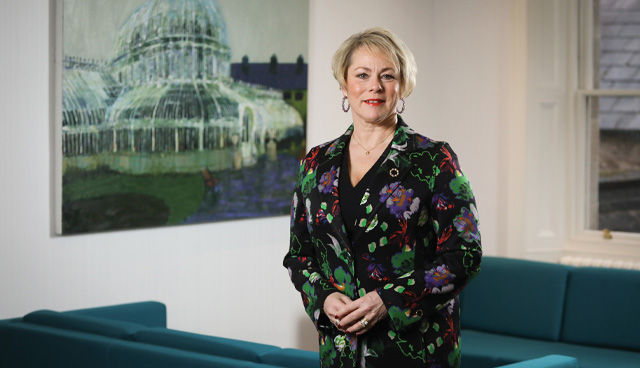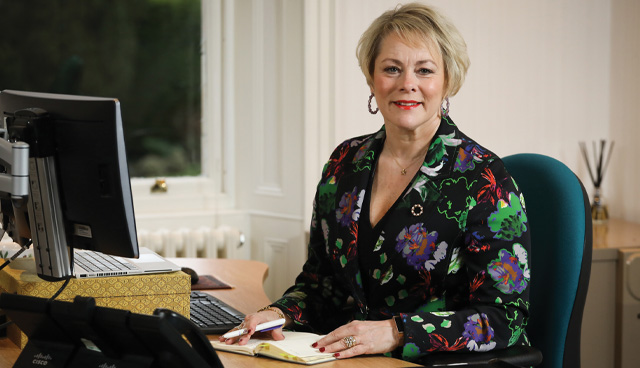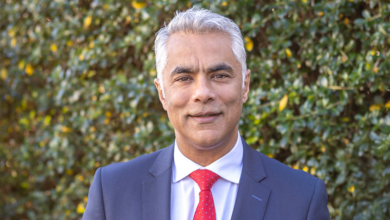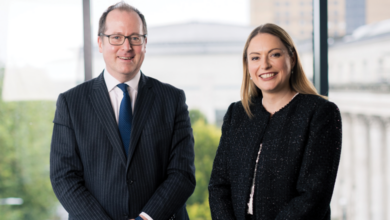Interim HOCS: Jenny Pyper

At the end of 2020, failure to reach political agreement on a new Head of the Civil Service (HOCS) by the First and deputy First Ministers resulted in Jenny Pyper, the first woman to ever hold the position, being appointed on an interim basis. agendaNi spoke to the former Utility Regulator about her role in Civil Service (NICS) reform, the pandemic response and the development of a new Programme for Government (PfG).
Prior to your appointment the HOCS role was vacant for three months. To what extent did this pose a challenge upon taking up the post and what were your immediate priorities?
I took up post on 1 December 2020 at the end of a very challenging year for both the new Executive and a very stretched civil service. The pandemic response has tested Executive ministers and the Civil Service to the limit; ministers were coping with a return to office after a three-year absence and heightened public expectations under the New Decade, New Approach (NDNA) agreement only to be almost immediately immersed into the most unforeseen challenge of a lifetime in managing the pandemic response. While the pandemic dominated our media headlines on a daily basis, both ministers and civil servants were simultaneously delivering the public services we largely take for granted, with the latter responding quickly to delivering grant support schemes, providing rapid advice and legislative solutions around the imposing and lifting of restrictions and responding to the increase in unemployment and the hardship that impacted on so many. The absence of a HOCS for over three months before my appointment no doubt presented challenges for ministers and the NICS at a very testing time.
However, the hiatus did highlight the importance of the leadership and direction provided by the HOCS; and it was an opportune time to carefully consider the role of HOCS and how best it could be restructured to be most effective.
There was no shortage of immediate priorities and this included the provision of advice to the First Minister, the deputy First Minister and to the Executive, support for the Permanent Secretary cohort and wider civil service, leadership of The Executive Office (TEO) with its extensive programme of delivery on cross-cutting issues and engagement with counterparts on a north/south/east/west basis to ensure co-operation on the pandemic response and the implications of Brexit, which was just weeks away at that stage.
You were tasked with leading reform of the NICS in your interim role. What does this entail and what progress has been made to date?
Reform of the NICS is a key commitment in NDNA and will take a number of years to effect. Fallout from the RHI Inquiry and a report from the Northern Ireland Audit Office on capacity and capability of the NICS have put the need for a transformation programme led by the NICS Board, firmly in the spotlight. The First Minister and the deputy First Minister tasked me with leading the necessary cultural, management and operational changes through a corporate programme of NICS modernisation to secure improvements in efficiency, effectiveness, and delivery. The most immediate progress to date is the reform of the role of the HOCS position itself which will manifest shortly when a substantive new HOCS and TEO Permanent Secretary will be appointed.
Can you outline the budgetary outlook for the Executive Office and the Civil Service and the challenges this poses?
The 2021/22 Budget does present significant challenges for the Executive and all departments with a constrained spending review outcome, particularly in the context of the Covid-19 pandemic. The Executive has again been provided with a single-year budget which constrains planning and makes prioritisation of services over the longer term difficult. Although the final budget for TEO indicates an increase in TEO’s Resource DEL budget when compared to our baseline, the budget does not provide any additional funding for business-as-usual activities. The increase is essentially due to additional funding in 2021/22 for particular areas such as the implementation costs for the Victims’ Payments Scheme for Permanent Disablement, the Historical Institutional Abuse Redress Scheme, EU Match Funding and EU Exit, all of which are ring-fenced for these purposes. So, the challenge for TEO and the other operational departments, will be to address inflationary pressures in the context of a standstill baseline budget.
What is the value of an outcomes-based Programme for Government and how can we ensure that outcomes remain relevant in the post-pandemic future?
The principles of an outcomes-based Programme for Government are simple: work with our partners and put impactful actions in place to make people’s lives better. It’s an approach that focuses on what we are achieving. It makes us truly question ‘are we making a difference and is anyone better off?’ and that gives us a powerful tool to challenge existing practice and change things for the better. That’s the strength of the outcomes-based approach and it encourages us to continually improve on what we do and the services we provide. In that regard, and as we begin to look forward to a post-pandemic future, the outcomes-based approach is more relevant than ever. The outcomes will be a guide for us and help us focus on the things that matter most to people.
The pandemic transformed how we deliver our public services. What are the major challenges faced by the Civil Service over the past year? To what extent has Covid crisis accelerated reform and unlocked greater efficiencies?
The multi-faceted nature of the services provided by around 23,000 NICS staff brought considerable challenge. Not only were many staff repurposed to deliver Covid-specific support, but many were also unable to work from home due to the nature of their roles: benefit office/frontline staff, industrial staff and key ministerial support teams. Like many other organisations, the challenge for people working remotely to deliver public services, often with home-schooling and caring responsibilities added to their daily workload, was without doubt the most difficult thing for all concerned. Working from home has worked exceptionally well but it hasn’t been without its downsides. Our recent staff survey indicated that while there was overwhelming support for a ‘blended’ approach of home and office-based working going forward, there was also a strong desire to return to the office when conditions allow. While remote meetings online have proved invaluable for everything from Executive meetings to team briefs, people seem united in their view that they miss the human contact, the camaraderie and simply a change of scene. It’s fair to say that the pandemic has fast-tracked some aspects of reform via remote working and tech and proved it can work but I find that expectations of how much people can cram into the working day have increased. While that can be beneficial at times, I worry that we have moved to a 24/7 ‘on’ mode which is simply unsustainable.
As Chair of the recently established Covid-19 Taskforce, could you outline what this role entails and the work the taskforce has undertaken?
The Executive’s Covid-19 Taskforce (ECT) continues to lead and coordinate an integrated programme of work of response to, and recovery from, the Covid-19 pandemic. The ECT structures its work under four workstreams: protect, recovery, adherence, and strategic communications. Work under each of these areas is being led by relevant departmental permanent secretaries, each of whom sit on the Strategic Oversight Board.
“I believe I will have re-established, stabilised, and refreshed the role of the HOCS, and positioned it, the senior team and the NICS Board to lead the civil service and support the Executive to deliver ever better public services for the good of the people here.”
The Taskforce continues to lead on the implementation of restrictions throughout Northern Ireland to help reduce the spread of coronavirus and to help manage the pressures on the health and social care system. Priorities have been focused on the pathway out of these restrictions and looking at ways to address potential changes in behaviours as restrictions are lifted and vaccinations are administered. Work is ongoing on the development and agreement of the Executive’s Covid Recovery Strategy with long term focus on adherence, social and economic recovery.
Will the splitting of the HOCS role be a positive step?
The role of HOCS has now been restructured to ensure that the corporate, strategic, and Executive priorities are HOCS-led, while the accounting officer role, as with all other departments, will fall to the new TEO Permanent Secretary who will also lead on areas such as NICS reform and Executive Office policy. This can best be described in private sector terms as akin to having a Chief Executive and Chief Operating Officer. Having been in the HOCS seat since December, I feel strongly that this is the correct direction of travel. The First Minister and deputy First Minister are supportive of the new structure and place a strong emphasis on delivery. There’s much to do operationally and we’re working against a backdrop of an ongoing pandemic, severely constrained public finances, and finite human resources and at times, an unpredictable political scene locally, nationally and internationally. While I like to think my multi tasking game is strong, there’s simply only so much one person can do. I’m confident that the revised structure will aid delivery on a number of fronts.
What do you hope to have achieved by the end of your tenure?
I believe I will have re-established, stabilised, and refreshed the role of the HOCS, and positioned it, the senior team and the NICS Board to lead the civil service and support the Executive to deliver ever better public services for the good of the people here. As the first woman to occupy the ‘HOCS-seat’ in the 100-year history of the NICS, I’ve tried to champion diversity and inclusion and I’m proud of the NICS and all it has delivered, especially over the past year. As I reflect on my tenure which has seen a huge range of challenges — economic, health, social and political — in a very short space of time, I’d like to think I might also manage to retain my sanity, dignity and sense of humour.







